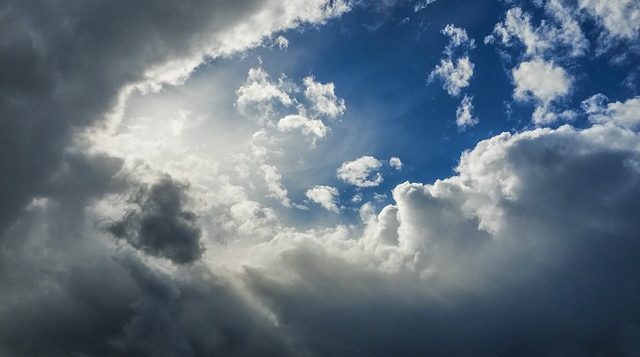In honour of the Hämeenlinna Climate Week, March reading tips focus on climate change. Climate change is one of the major global problems that effects not only nature, but also all human life. Here are five varied picks on the topic.
 Berners-Lee, M. (2019). There is no Planet B: A handbook for the make or break years. Cambridge University Press. Audiobook. Also available in print.
Berners-Lee, M. (2019). There is no Planet B: A handbook for the make or break years. Cambridge University Press. Audiobook. Also available in print.
Despite its title, this book is not about gloom and doom. Yes, Berners-Lee argues we are at a tipping-point – and we already know that. He does not chastise or lay blame, he just presents the facts. The book has been constructed as a Q&A: he asks seemingly simple questions and answers them matter-of-factly, basing his answers on scientific research. If you have been looking for an operational handbook on how to move forward, look no further.
 Poshen, P. (2015). Decent Work, Green Jobs and the Sustainable Economy: Solutions for Climate Change and Sustainable Development. ILO.
Poshen, P. (2015). Decent Work, Green Jobs and the Sustainable Economy: Solutions for Climate Change and Sustainable Development. ILO.
Poshen argues that economic development cannot be separated from environmental protection, not if we want to attain sustainable economies. He brings together extensive studies from several different disciplines, showing how important environmental sustainability is also for economic growth. Countries need to integrate their social, economic and environmental policies with labor market to create decent green jobs.
 Leichenko, R. M. & O’Brien, K. (2019). Climate and society: Transforming the future. Polity Press.
Leichenko, R. M. & O’Brien, K. (2019). Climate and society: Transforming the future. Polity Press.
This is a welcome change from the numerous economic or technological approaches to climate change. The authors’ premise is that scientific evidence alone is not enough to motivate humans to action. They discuss the importance of different worldviews, values and norms, the role of empathy and collective action, vulnerability, wellbeing and human security. They bring the challenges of climate change to a personal and societal level, yet manage to do this in a very hopeful way.
 Marshall, G. (2014). Don’t even think about it: Why our brains are wired to ignore climate change. Bloomsbury.
Marshall, G. (2014). Don’t even think about it: Why our brains are wired to ignore climate change. Bloomsbury.
Marshall identifies the evolution of the human brain as the cause of why we admit the importance of climate change, yet choose to ignore it. He talks about the evolution, our perception of threats and fears, and our deep instincts to defend family and tribe. Basing his ideas on scientific research, Marshall uses stories to engage us as he shows how science can become less important than social views.
Watch on video as the author talks about why human brain ignores climate change, and what we can do about it.
 Zommers, Z., & Alverson, K. (Eds.). (2018). Resilience: The science of adaptation to climate change. Elsevier.
Zommers, Z., & Alverson, K. (Eds.). (2018). Resilience: The science of adaptation to climate change. Elsevier.
This book is a comprehensive review of climate change adaptation, from needs and action to tools an approaches, not forgetting the emerging issues. With numerous case studies, the leading experts analyse and question ongoing interventions, identifying areas where further research and innovation is needed.
See HAMK library favourites for more books on climate change.



